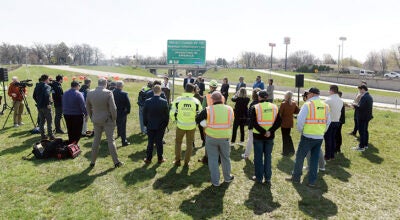Our Opinion: Veterans issues not limited to one day
Published 9:30 am Wednesday, November 13, 2013
Though Veterans Day has passed, we need to still talk about veterans. Specifically, veteran health.
We were pleased to see U.S. Sen. Al Franken call for more emphasis on rural veteran health care when he toured Austin on Monday. With slightly more than 22 million veterans in the U.S. in 2012, according to the American Legion, veterans make up a large population within the U.S. Yet they face many more struggles than the average American, and with unemployment more than three times the national average among veterans, we can only imagine the difficulties current and former veterans face in receiving health care courtesy of the U.S. Department of Veterans Affairs.
One area veteran told Franken a severe lack of miscommunication led to multiple needless doctor visits and tests for a torn rotator cuff in his shoulder. Another spoke about the struggles veterans will soon have with health insurance. Yet another man told Franken he lost his insurance after retiring from a career in the public school system.
These stories are common not only in Mower County but throughout Minnesota and the U.S. at large. Once again, reports from the American Legion indicate more than 8.3 million veterans enrolled in the VA health care system as of 2011. Moreover, rural veterans tend to be older than their urban counterparts, which means rural veterans are in much more need of decent health care.
There’s welcome news for veterans in Austin, as a new VA clinic is set to open in Albert Lea in 2014. That clinic is expected to serve between 2,000 to 3,000 veterans in a 100-mile radius next year, with even more veterans in the future.
Yet, as Franken notes, it’s not enough to open a clinic if there isn’t more being done to improve rural veteran health care quality, from recruiting more doctors to improving communication and services. We agree with Franken in this instance, and we hope more of our elected officials, and residents at large, pay more attention to rural veteran health care.





